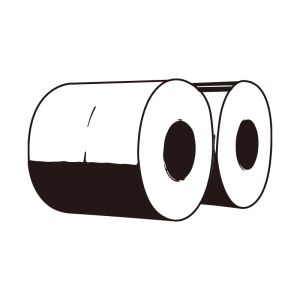Foreign media reported on October 29th that, after nearly two years of the invasion of Ukraine, a few Western banks and traders, including Citigroup Inc. and Trafigura Group, are increasingly willing to engage in new transactions regarding Russian metals, seizing profit opportunities as competitors withdraw.
These transactions indicate that, amid conflicting signals from Western governments on whether they want businesses to deal with Russian commodities, some traders are bypassing sanctions and other restrictions on Russia to maintain the flow of their natural resources. The head of a trading company privately stated that transactions involving Russian supplies are one of the few areas with the potential for stable profits when many find it challenging to make money in metal trading.
Western governments do not have comprehensive restrictions on trading Russian metals, and these transactions do not involve companies sanctioned by the United States or Europe. However, in the world of metals, the status of Russian raw materials has been a worrisome subject, as many Western buyers have withdrawn from Russia, leading to significant increases in sales to Asia, and competitors have lobbied the LME to ban unsanctioned supplies but have not succeeded.
Now, after 20 months of the Ukraine invasion, a period of uncertainty about the legal and moral status of Russian metal trading is giving way to a more stable situation.
Insiders reveal that Trafigura has been actively seeking new deals in the Russian metal industry. Due to the sensitivity of the discussions, these insiders requested anonymity. They say the company has entered into a long-term agreement to purchase over 100,000 tons of copper from MMC Norilsk Nickel PJSC and has been buying significant amounts of nickel from this Russian company, making it one of the mining giant’s largest customers.
Another insider says that Trafigura has reached an agreement with Russian Aluminum to purchase nearly 200,000 tons of aluminum, directly challenging Glencore, another major player.
The trader is also bidding for a long-term contract to purchase zinc concentrate from the large Ozernoye zinc mine in Siberia. Other insiders say that this zinc mine, once it reaches full production in the coming months, will become one of the world’s largest zinc mines. One of the insiders mentioned that other companies seeking to acquire the mine include the Swiss trading company Open Mineral and two Chinese firms.
Kenny Ives, CEO of IXM, recently stated in an interview that IXM has no business in Russia. IXM is the third-largest metal trader after Glencore and Trafigura. “Do we buy Russian metal outside of Russia? Yes, we do. I plan to continue buying Russian metal outside of Russia as long as we have the capability, and so are our competitors.”
Meanwhile, Milan Popovic, CEO of Swiss trading company Red Metal AG, stated that his company, which has been a significant buyer of Russian copper, is also reducing its business in this area. He said, “Red Metal AG has terminated all contracts with Russian suppliers, and the last goods we received were on September 6, 2023.” He added that the company is now focusing on other countries, including Serbia, Uzbekistan, Mongolia, China, and Kazakhstan.
Banking policies have seen similar changes. Traders and bankers say that very few banks are willing to finance the direct purchase of Russian metals from Russian companies, citing potential sanction risks, logistical difficulties, and ethical and reputational concerns.
However, once Russian metals are delivered to the LME, some banks have become more willing to buy them in recent months, arguing that providing financing for transactions involving Russian entities is different from purchasing metals through major global exchanges.
For example, in recent months, Citigroup has been one of the most active buyers of Russian aluminum on the London Metal Exchange (LME). Bloomberg reported in August that the bank had been avoiding metals produced by Russian Aluminum until recently, but now, as a major participant in the LME, the bank is willing to accept Russian metals if they are delivered through the exchange.
Insiders say that other major banks taking a similar stance in the metal market include ICBC Standard Bank Plc and Macquarie Group Ltd., both of which are willing to provide financing for Russian metals if they are delivered to the LME.
Bloomberg also reported earlier this month that it’s not just banks buying Russian metals on the LME: hedge fund Squarepoint has purchased around 50,000 tons of aluminum, most of which is Russian aluminum, as a bet on the market.
These purchases are supporting the Russian aluminum market, while some competitors of Russian Aluminum had warned that the LME could be flooded with unsold Russian metals. In a negotiation a year ago, the LME considered and rejected this idea, ultimately deciding to continue accepting Russian metals.
However, some banks have taken a more cautious approach. For example, according to an insider, the Bank of Montreal will not finance Russian metals at all. The insider stated that if the bank’s traders obtain warrants for Russian metals in the LME’s clearing system, they will immediately resell them.
There was no response to requests for comments from Rusal, Norilsk Nickel, Ozernaya Mining Company, Trafigura, Citigroup, ICBC Standard Bank, Macquarie, and the Bank of Montreal. According to an insider, Open Mineral, supported by the UAE sovereign wealth fund Mubadala, conducts business in Russia through a UAE entity.



